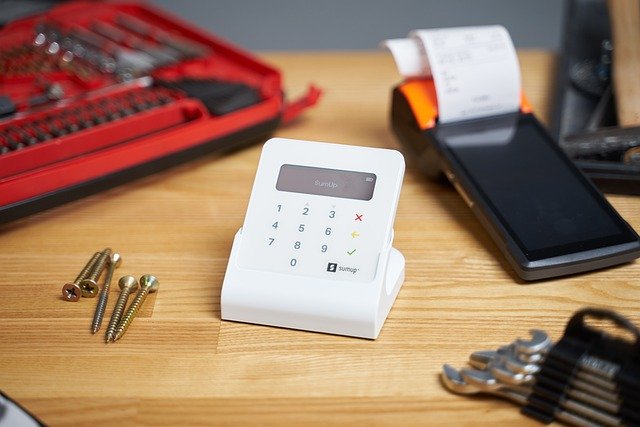
Published: July 9th, 2020 in Business
UK businesses need to be aware that HMRC closed the VAT payment deferments scheme put in place as a result of COVID-19 on 30 June 2020. The payment holiday was established in March and was available for three months, as a way to ease the financial difficulties many businesses found themselves in as a result of the coronavirus crisis.
Businesses who have taken part in the scheme must now consider:
- Reinstating direct debits so that HMRC can begin to take payments against as of 1 July
- Making arrangements to pay back any postponed VAT by 31 March 2021
- Making direct bank payments as normal
- Submitting VAT returns as normal
For those who are concerned and feel that they need advice regarding the new guidance businesses should only contact HMRC if:
- They are unable to pay back any VAT due
- Need extra time to pay back deferred VAT
- Need to find out about what other support is available
What is VAT deferment?
In an announcement on 20 March 2020, Chancellor of the Exchequer Rishi Sunak announced the VAT Deferral scheme, saying: “To help businesses pay people and keep them in work, I am deferring the next quarter of VAT payments. That means no business will pay any from now until the end of June; and you will have until the end of the financial year to repay those bills.That is a direct injection of £30bn of cash to employers, equivalent to 1.5% of GDP”
Starting from the day of the announcement, the scheme allowed businesses to opt in by simply not making VAT payments during the time that the scheme was running. Businesses could do this by completing a form online, and then cancelling the direct debit with their bank so that HMRC would not attempt to automatically collect VAT due on receipt of their VAT return.
Businesses who did not want to take part in the deferral scheme were able to continue making payments as usual, and those who wanted to take part in it for only some of the time could make ad hoc payments both during and after the deferral period to ensure that their VAT payments were up to date.
Businesses have been asked to submit their VAT return as normal, even if they were planning to take part in the scheme. HMRC have guaranteed that they will not charge interest or penalties on any amount of VAT deferred.
What VAT payments could be deferred?
Businesses were only able to defer:
- Quarterly and monthly VAT returns’ payments for periods ending February, March and April
- Payments on account due between 20 March 2020 and 30 June 2020
- Annual accounting advance payments due between 20 March 2020 and 30 June 2020
VAT MOSS and import VAT was not covered.
VAT repayments and returns
VAT repayments have been processed as normal throughout the coronavirus crisis, meaning that most repayments have continued as usual and will continue to do so now, paid within five days of being processed.
HMRC has confirmed that repayments due will not be offset against deferred VAT, but may be offset against other existing debts. If your business is experiencing cash flow issues as a result of the coronavirus, you may be able to switch to monthly returns and pay in instalments rather than as a larger bill once a year.
Might VAT deferrals be extended further?
Due to the announcement which declared a formal date for ending the VAT Deferment scheme, it looks likely that the scheme will not be extended any further. However, it is worth bearing in mind that no one can be certain what the outcome of the coronavirus crisis will be, or when it will end, so there is no announcement set in stone and businesses should always pay attention to the most recent communications from the government in deciding how next to proceed.
How was VAT deferment expected to help struggling businesses?
One of the criticisms of the VAT Deferment scheme is that it simply gives businesses more time to pay a tax that many simply cannot afford during the current crisis. Whilst small companies and start-ups were asking for a tax holiday, the government was announcing help that was equivalent to a loan.
In a package of answers given by HMRC to a number of frequently answered questions, the body said: “This will help alleviate the immediate, temporary pressures businesses are facing. We are confident the economy and businesses will bounce back from this in time. To help them do that, we will give them the time needed to pay back deferred tax. Businesses will have until the end of the financial year to make these repayments.
“The government has also announced a comprehensive wage subsidy scheme. Tax deferral will help businesses with cashflow in the meantime.
“HMRC is also delivering an enhanced Time to Pay offer to fit the specific impacts of COVID-19. Time to Pay is available to all businesses and individuals who are in temporary financial distress as a result of COVID-19 and are unable to pay their tax on time or have existing liabilities. HMRC has set up a dedicated helpline to enable those eligible to get practical help and advice which can be reached by calling 0800 024 1222.”
What should you do if you made time to pay arrangements before 20 March?
Those who have already made Time To Pay (TTP) arrangements should continue to do so if those arrangements were made before 20 March 2020. For TTP arrangements made for payments due between 20 March 2020 and 30 June 2020, businesses are able to defer payments until 31 March 2021. To do this, all you need to do is cancel the direct debits set up for these payments. You do not need to inform HMRC.
With this next step, the government is hoping to encourage a return to normal for most businesses, as the country begins to reopen, and companies are able to start operating more freely than before. It is important that businesses remember that there is always support available during these times, and that more help can be found on the gov.uk website if they have questions.
Next steps
With this next step, the government is hoping to encourage a return to normal for most businesses, as the country begins to reopen, and companies are able to start operating more freely than before.
If your company is still readjusting to the “new normal” and you cannot accurately predict your finances for the upcoming date of 31 March 2021, the date on which you will have to pay any deferred VAT, then coming up with a plan B now could make sense. There are still government backed loan options your business can apply for which could be used to increase your reserves and help insulate you from further trading difficulty.
Here at TFMC our professional qualified accountants are here to help if you need advice on your finances, we can work with you and help you navigate you and your company through the current crisis and beyond. Please contact us on 0800 470 4820 or via email at [email protected] to find out more.


